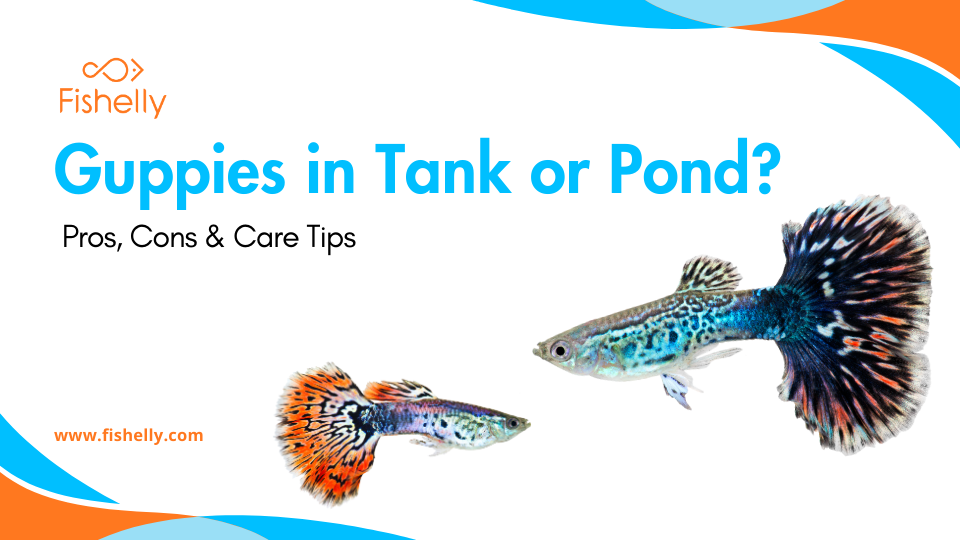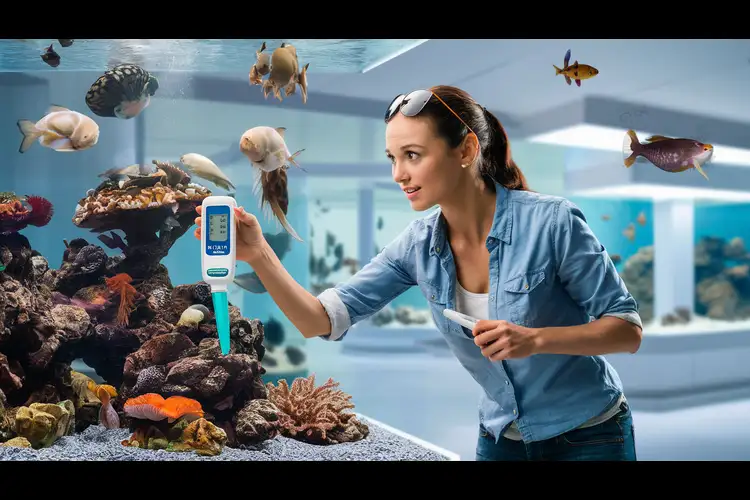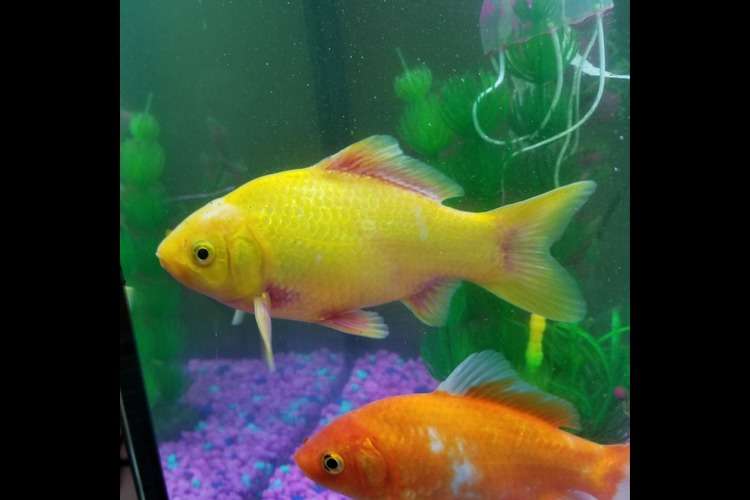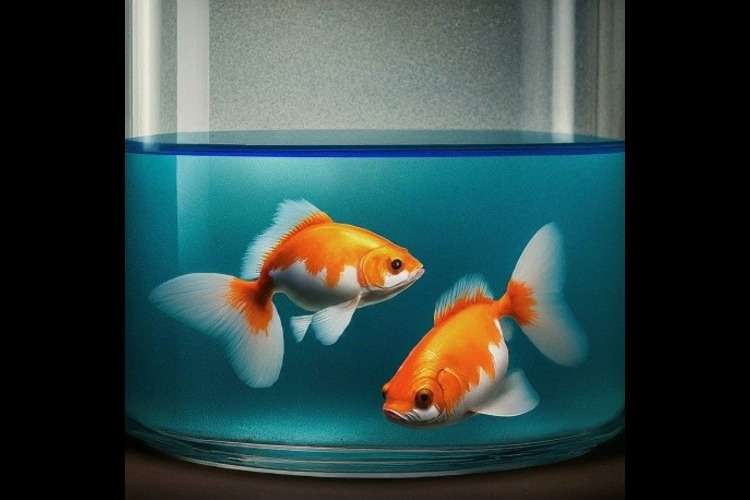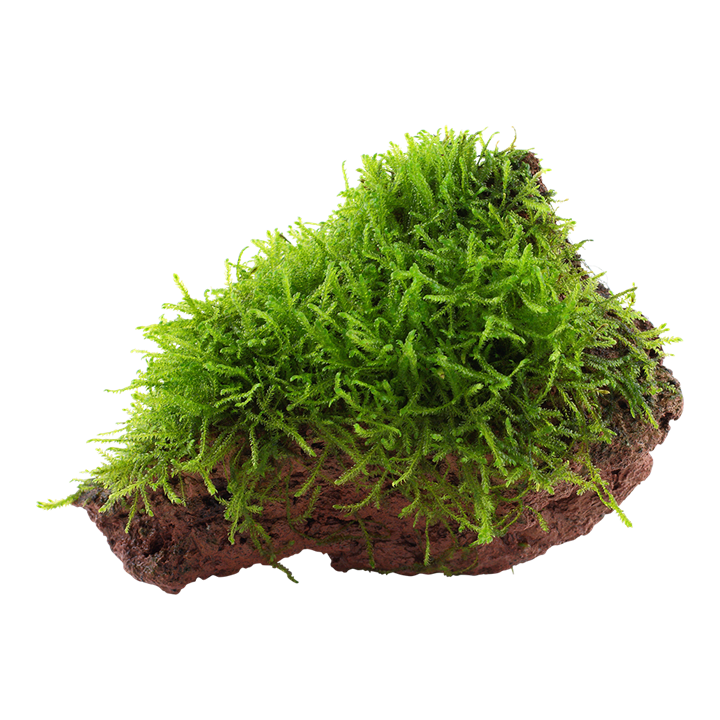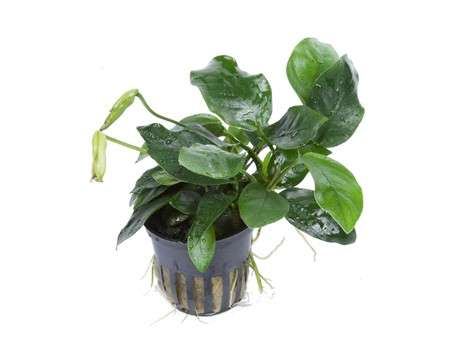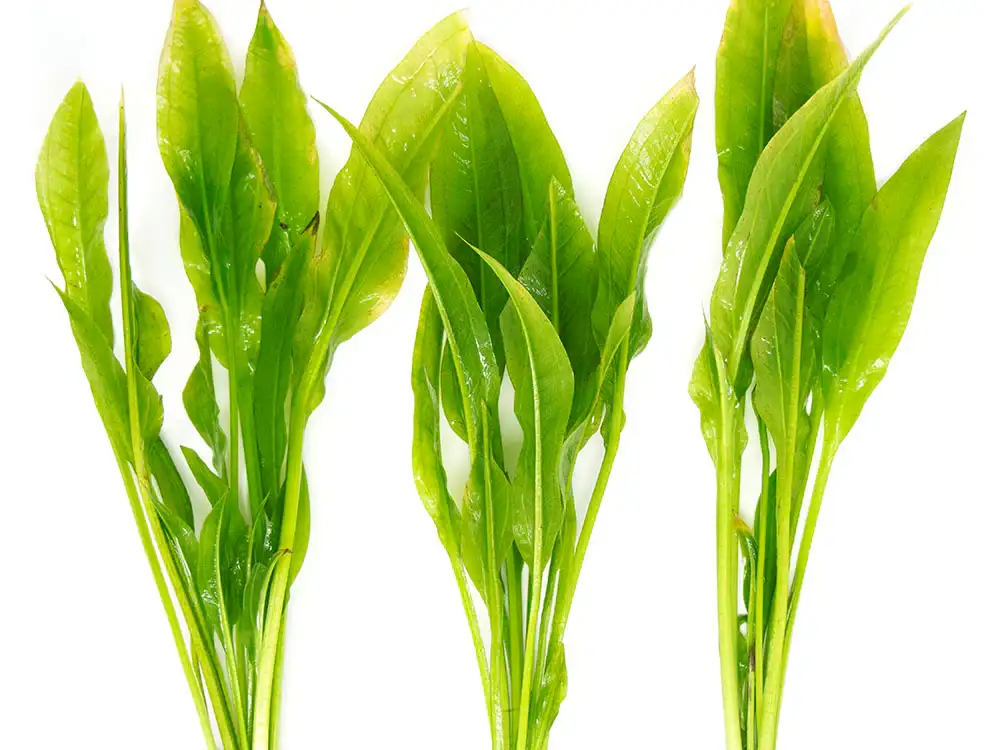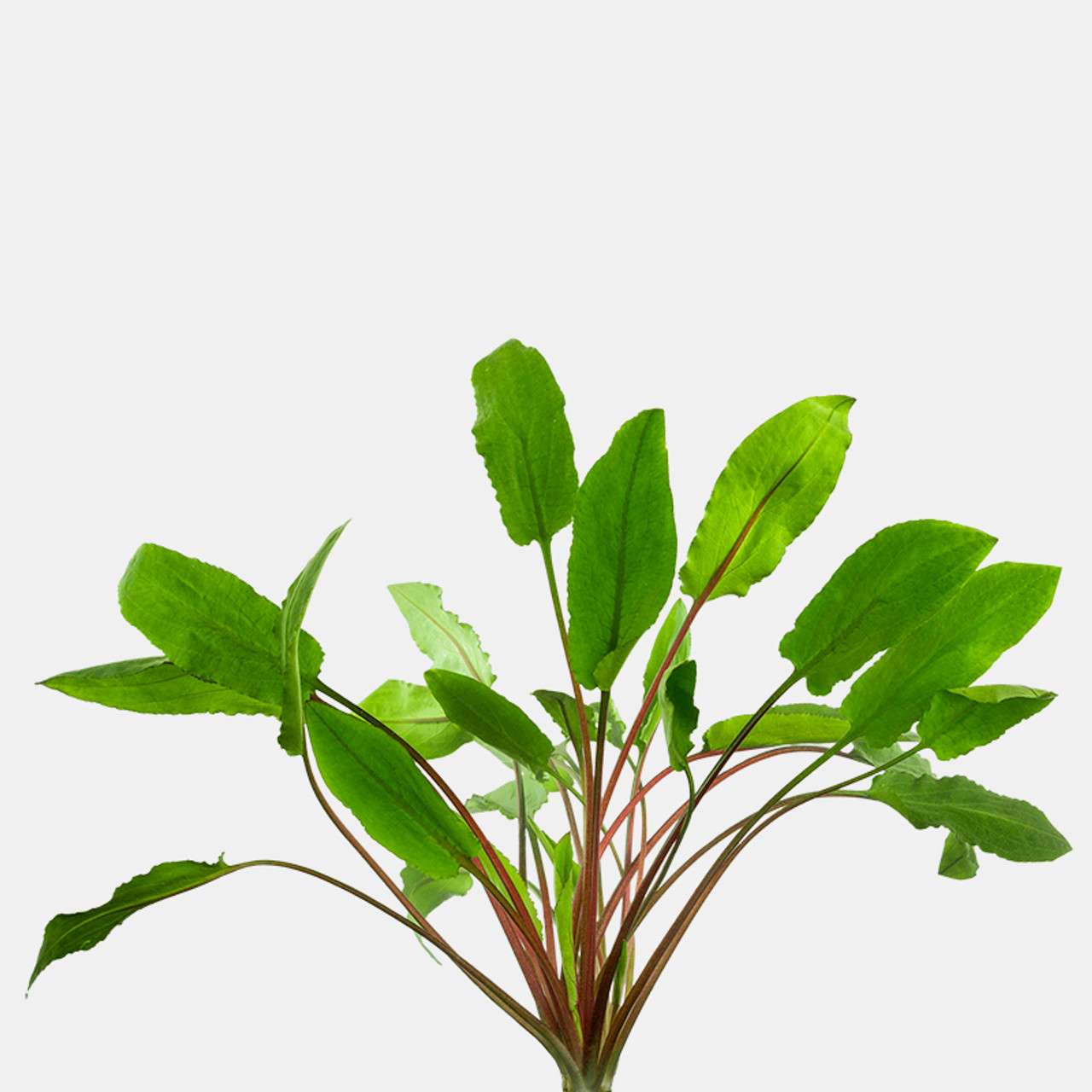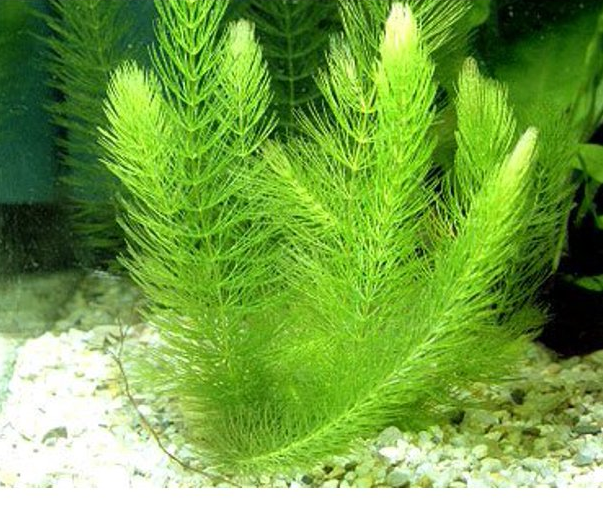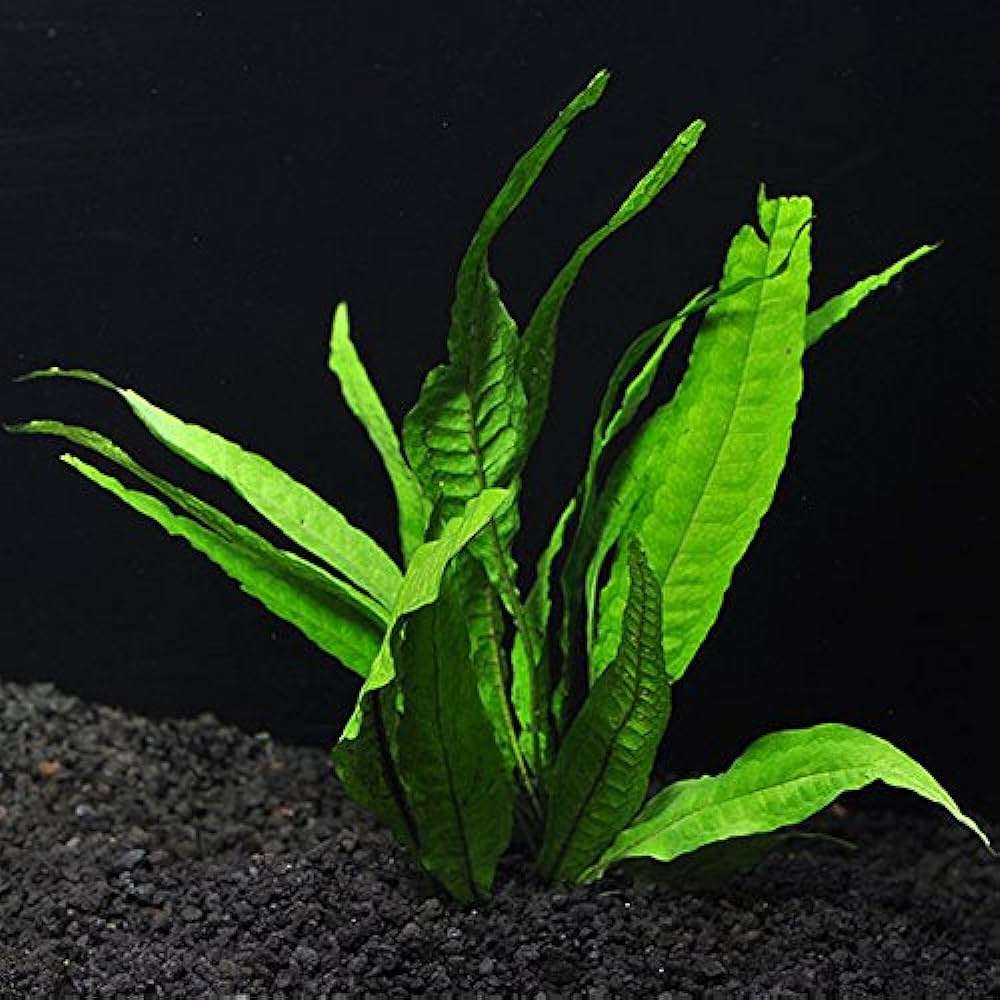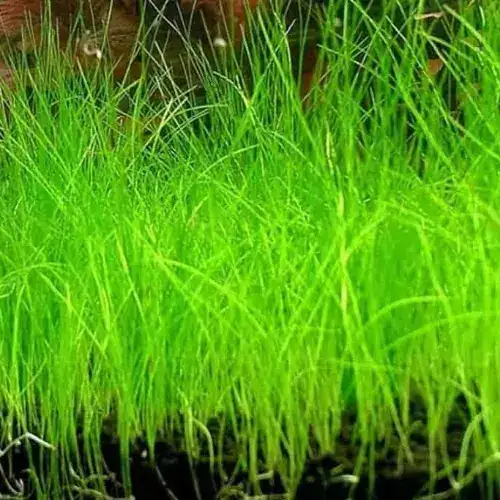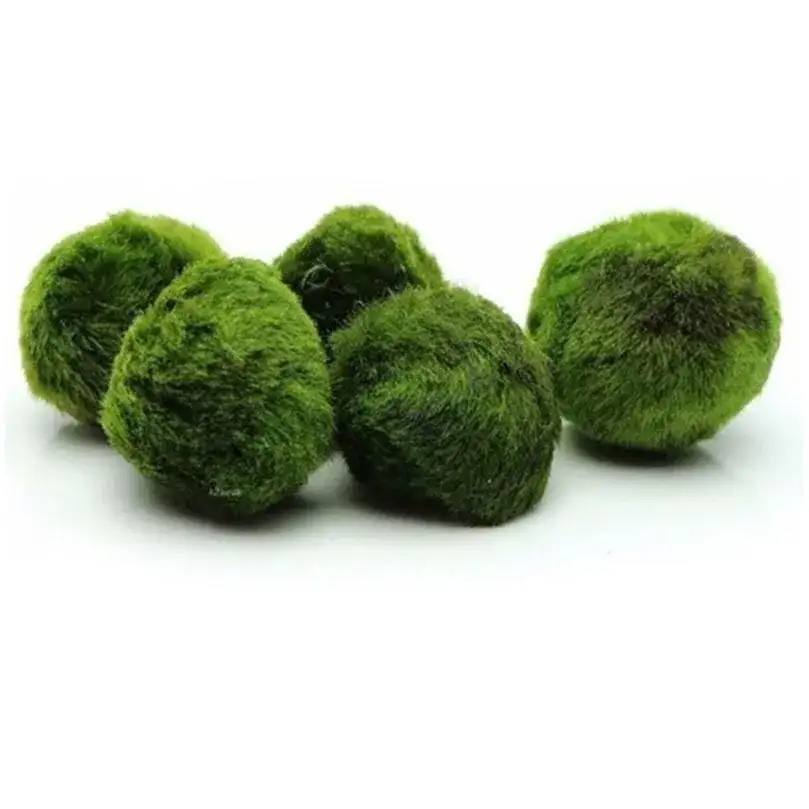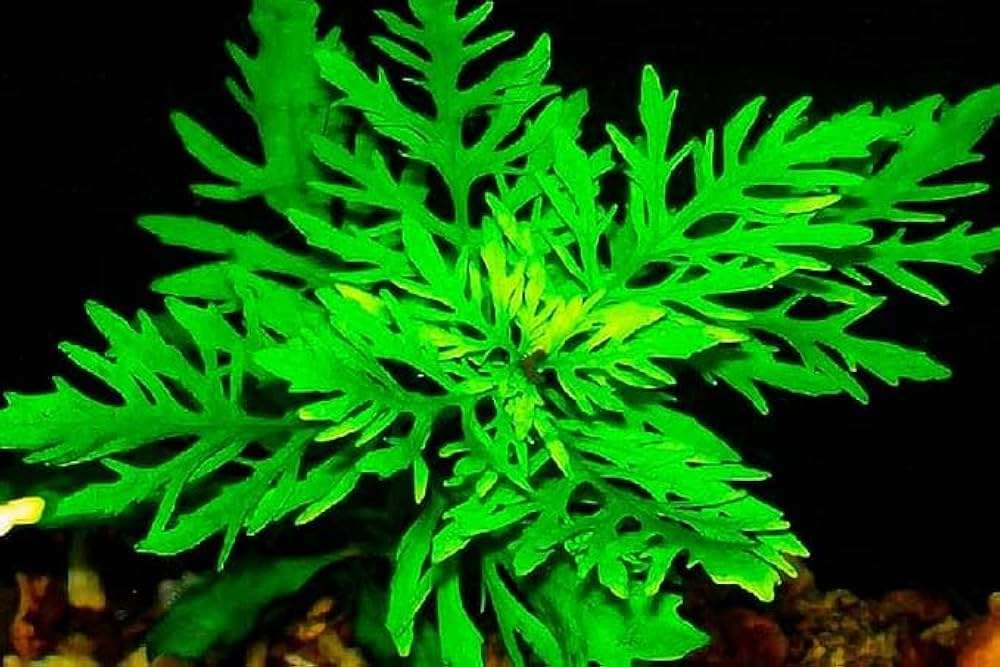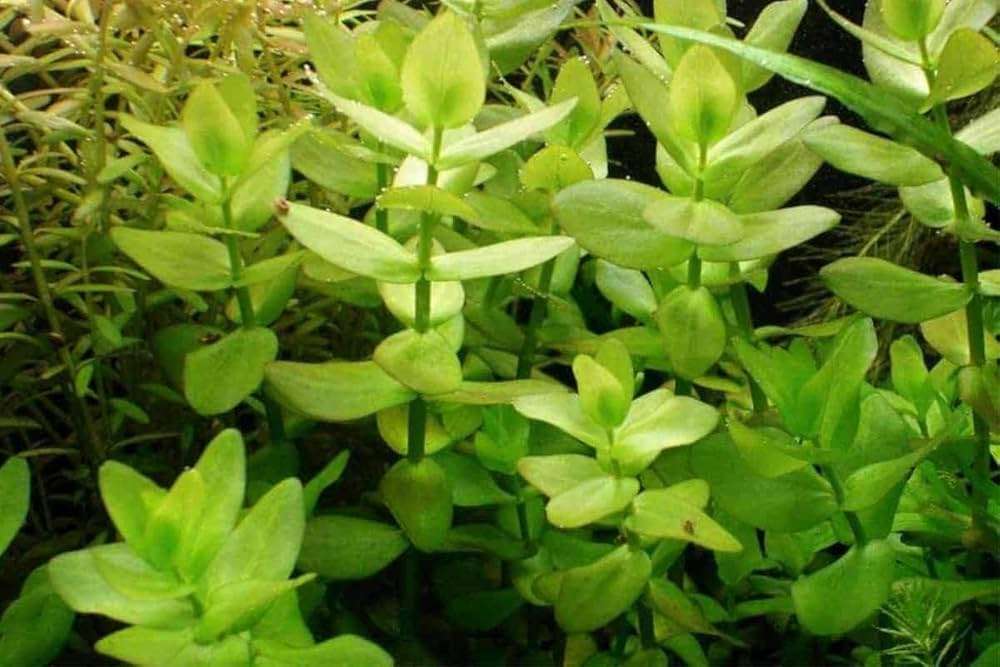Guppies in Tank or Pond? Pros, Cons & Care Tips
Wondering if guppies do better in a tank or pond? Learn the pros, cons, and care tips to choose the right home for healthy, colourful guppies.
Table of Contents
- Guppies in an Indoor Tank
- Guppies in an Outdoor Pond
- Key Considerations Before Choosing
- Faq
- Conclusion
Among the most famous freshwater fish world over, guppies are simply adored because of their brilliant colours, vivaciousness, and easy breeding; thus being the celebrity pets among starters and specialists in aquarists. But one of the most asked questions to come around after deciding to keep guppies is:
Should guppies be kept in a tank inside aquariums or in local ponds outside?
The best answer will always depend on certain factors such as local climate, available space, finances, and experience with fishkeeping. It is done deeper into the two options to help you come up with a good choice for your guppies.
Guppies in an Indoor Tank
Most people will have indoor aquariums to enjoy guppies. Tanks allow full control of the environment and the possibility of close observation every day.
Advantages of an Indoor Tank
• Protection against predation
• Indoors safe from predatory birds, frogs, dragonfly larvae, or insects that can harm them from outside.
• Controlled water conditions
Control very easy:
Temperature: A thriving 22-28 Celsius (72-82 Fahrenheit) for guppies.
pH: Ideally between 6.8-7.8.
Filtration: Keeps the water clean and oxygenated.
Recording diseases becomes easier.
Sick guppies are much easier to discover inside a tank, and isolation or treatment can also happen quickly.
Control of Breeding
In a short time, guppies breed, and if they are kept separated to males and females in a tank, then fry survival can be controlled or maintained in selective breeding.
Beginner-friendly
Indoor tanks are much less forgiving and allow you to learn fishkeeping step by step.
Disadvantages of Keeping Indoor Fish
Limited Space
Houses of guppies can only be within very few tanks. Too many guppies can cause overcrowding and lead to stress, fighting, and poor water quality.
Regular Maintenance
Every week water change—20-30 percent.
Cleaning of filters
Vacuuming of uneaten foods and waste.
Electricity Usage
While heaters, lights, and filters add up in running costs, the monthly bill also increases.
Less Natural Environment
There are many decorations available for an aquarium but, no matter how beautiful they may seem, they will never completely replicate a natural pond.
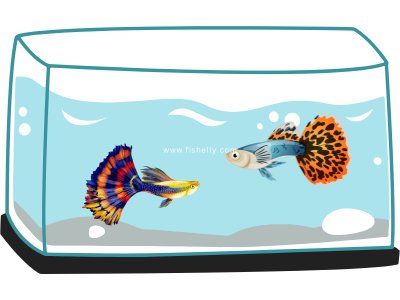
Guppies in an Outdoor Pond
But for those having space outside, an entire pond could be somewhat of a pleasurable natural setting in which to keep guppies. Guppies, given full exposure to sunlight, free water, and their natural food sources, will thrive and reproduce much better in numbers.
Advantages of an Outdoor Pond
Increased space
Ponds give more swimming room and ratio of area to fish; hence, minimal overcrowding causes freer schooling behaviour.
Natural Light Source
Guppies coloration improves activity levels and strengthens the immune system.
Natural food source
Guppies can now feed on mosquito larvae, algae, and insects-not only reducing your feed cost but enriching their diet.
More fish A pond can host many more guppies than, say, a tank, without the same risk of overcrowding.
Closer the habitat
Outdoor ponds mimic the environment guppies have evolved to be in and keep them lively and stress-free.
Disadvantages of an Outdoor Pond
Sensitive to temperature
Guppies are not really fond of water below 18°C (64°F). In most colder regions, they will die during the winter unless they are brought indoors or supplied with a heater.
Predator Risks
Birds, frogs, and insects can prey on guppies or fry. Usually, a pond net or cover is necessary.
Diseases & parasites
More pests, bacteria, or harmful organisms can easily introduce themselves into an outdoor water supply compared to a market tank.
Breeding without control
There is that quick proliferation of population in ponds, which would end in overcrowding if not kept in check.
Maintenance on seasonal aspects
Leaves, dirt, and rain have an effect on the quality of the water in the pond, which requires checking and cleaning periodically.
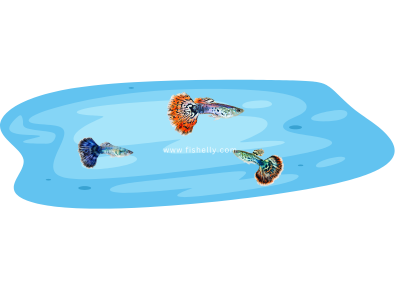
Key Considerations Before Choosing
1. Your Climate
Tropical/Warm Areas: Ponds can have year-round use.
Temperate/Cold Regions: Best kept in tanks unless you plan to move them
indoors or have a winter heater for guppies.
2. Your Experience Level
For Beginners: Start fish-keeping with a tank, which is more manageable than a pond.
For the Experienced Fishkeeper: Exciting, natural, and may see guppies behaving better.
3. Your objective
Breeding & Selective Colour Strains: Tanks would be more controllable. Larger Assemblies and More Natural Health: Ponds have it all.
4. Cost
Tanks: Higher electricity bills (heater, filter, lights).
Ponds: Long-term cost is much lower, but initial construction/maintenance may be high.
Quick Info: Tank vs Pond
Tanks: Best for beginners, breeding, and controlled environments.
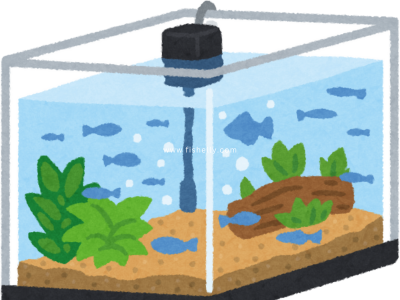
Ponds: Best for the outdoors and natural growth, overwhelming groups, and advanced keepers in warm climates.
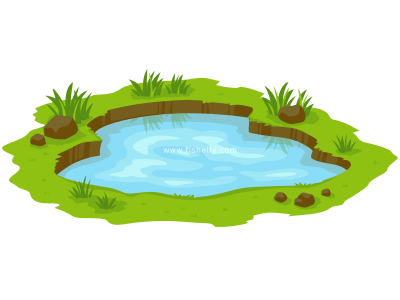
Faq
1. Can guppies live outside in a pond all year round?
Guppies can live in outdoor ponds year-round only in warm or tropical climates. In colder regions, they cannot survive winter outdoors and should be brought inside or provided with a pond heater.
2. Do guppies need a heater in a tank?
Yes, in most cases. Guppies thrive in warm water between 22–28°C (72–82°F). If your room temperature drops below this range, a heater is necessary to keep them healthy.
3. How many guppies can I keep in a tank?
A good rule is 1 guppy per gallon of water, though a slightly larger space is better to prevent overcrowding. For example, a 10-gallon tank can house around 7–8 guppies comfortably.
4. Will guppies breed too much in a pond?
Yes. Guppies reproduce very quickly, and outdoor ponds provide plenty of space and food, which leads to fast population growth. Regular monitoring or separating males and females is recommended if you don’t want them to overpopulate.
5. Do guppies need a filter in a tank?
Absolutely. A filter keeps the water clean, oxygenated, and free from harmful waste buildup. Without it, guppies are more prone to stress and disease.
6. What do guppies eat in a pond?
In ponds, guppies enjoy natural foods like mosquito larvae, algae, and small insects. However, it’s still important to feed them quality fish food to ensure a balanced diet.
7. Are guppies safe from predators in ponds?
Not always. Birds, frogs, and even insects may prey on guppies, especially the fry. Using a pond net or providing hiding spots like plants and rocks can help protect them.
8. Can guppies survive without sunlight indoors?
Yes, but natural or artificial light is essential to maintain their color and regulate their daily activity. A regular aquarium light on a day-night cycle is recommended.
9. Which is better for beginners—tank or pond?
For beginners, tanks are the better choice. They allow easier monitoring, simpler maintenance, and protection from predators and weather changes.
10. Can guppies live with other fish in a pond or tank?
Yes, guppies are peaceful and can live with other small, non-aggressive fish like mollies, platies, or tetras. Avoid keeping them with large or aggressive species that may harm them.
Conclusion
Both tanks and ponds can offer guppies a healthy and enjoyable environment, but the decision depends on which factors weigh most in your case: climate and experience, as well as personal goals. From a tank-the most suitable for beginners, colder regions, and those who want more control over breeding and water conditions-to a pond, which would be the natural choice for warmer climates, larger groups, and a more natural lifestyle. In the end, whether you choose to have a guppy in a safe and controlled environment or in a free space enriched with natural stimulation, the cork of happy guppies always lies in clean water, nutrient balance, and constant care.
